
The Law of the Sea of Viet Nam
Đăng lúc: Thứ ba - 06/11/2012 09:15 - Người đăng bài viết: adminCHAPTER I
GENERAL PROVISIONS
Article 1. The scope of this Law
This Law provides for the baseline, the internal waters, the territorial sea, the contiguous zone, the exclusive economic zone, the continental shelf, islands, the Paracel and Spratly archipelagos and other archipelagos under the sovereignty, sovereign rights and jurisdiction of Viet Nam; operations in Viet Nam's maritime zones; maritime economic development; the management and protection of the sea and islands.
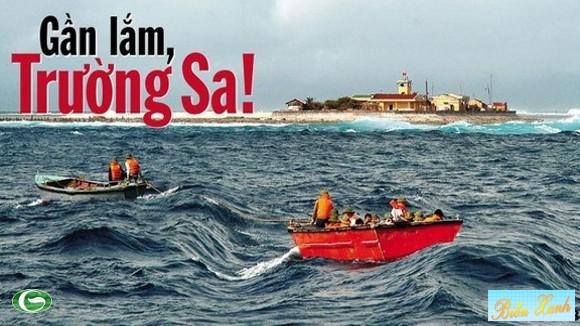
Article 2. Legal application
1. The provisions of this Law shall prevail in case there are differences between the provisions of this Law and those of other laws in relation to the sovereignty and legal status of Viet Nam's maritime zones.
2. In case there are differences between the provisions of this Law and those of an international treaty to which the Socialist Republic of Viet Nam is a party, the provisions of the international treaty shall prevail.

Article 3. Terminology
In this Law, the following terms are understood as follows:
1. The maritime zones of Viet Nam covers the internal water, territorial sea, contiguous zone, exclusive economic zone and continental shelf under Viet Nam's sovereignty, sovereign rights and jurisdiction, determined in accordance with Vietnamese legislation, the international treaties on boundaries and territory to which the Socialist Republic of Viet Nam is a party and in conformity with the 1982 United Nations Convention on the Law of the Sea.
2. The high seas cover all parts of the sea beyond the exclusive economic zones of Viet Nam and other states, and not including the seabed and the subsoil thereof.
3. Vessels mean vehicles operating on or under the water surface, including ships, boats, other engined or non-engined vehicles.
4. Military vessels mean vessels of the armed forces of a state bearing outer signals that clearly manifest the nationality of that state, commanded by a navy officer serving that state, whose name appears in the list of officers or in equivalent documents. Such vessels are operated by a crew working under military orders.
5. Vessels for official service mean vessels that are used primarily for the conduct of non-commercial State activities.
6. Resources include living and non-living resources underwater, on the seabed and the subsoil.
7. The isobath is the line connecting points of the same depth at sea.
Article 4. Principles of management and protection of the sea
1. The management and protection of the sea are conducted in a unified manner in accordance with Vietnamese legislation and in conformity with the United Nations Charter and other international treaties to which the Socialist Republic of Viet Nam is a party.
2. Vietnamese agencies, organizations and citizens have the responsibility to safeguard the sovereignty, sovereign rights and jurisdiction of Viet Nam over its maritime zones, islands and archipelagos, as well as protect marine resources and the marine environment.
3. The State of Viet Nam settles disputes related to the sea and islands with other countries by peaceful means, in conformity with the 1982 United Nations Convention on the Law of the Sea, international law and practices.
Article 5. Policy on the management and protection of the sea
1. Bring into full play the strength of the entire nation, take necessary measures to safeguard the sovereignty, sovereign rights and jurisdiction over the maritime zones, islands and archipelagos, protect marine resources and the marine environment, and promote the development of maritime economy.
2. Develop and implement strategies, planning, plans on the management, utilization, exploitation, and protection of maritime zones, islands and archipelagos in a sustainable manner for the sake of socio-economic development, national defence and security.
3. Encourage organizations, individuals to invest capital, labour and materials and apply scientific and technological achievements in the utilization, exploitation and development of maritime economy suitable with the conditions of each maritime zones, meeting the demand for national defence and security; increase information dissemination on the potentials of and policies and legislation on the sea.
4. Encourage and safeguard fishery activities conducted by Vietnamese fishermen in Viet Nam's maritime zones, protect the operation of Vietnamese organizations and citizens beyond Viet Nam's maritime zones in compliance with international treaties to which the Socialist Republic of Viet Nam is a party and international law and the legislation of the coastal states concerned.
5. Allocate appropriate investment to ensure the operation of sea patrol and surveillance forces, to improve the logistic infrastructure to serve activities at sea, in islands and archipelagos and to develop maritime human resources.
6. Implement preferential policies previledges in favour of people living in islands and archipelagos and preferential treatment to forces engaged in the management and protection of maritime zones, islands and archipelagos.
Article 6. International cooperation on maritime matters
1. The State of Viet Nam strongly promotes international cooperation on maritime matters with countries, regional and international organizations on the basis of international law, respect for independence, sovereignty and territorial integrity, equality and mutual benefit.
2. International cooperation on maritime matters includes :
a) Maritime and oceanic surveys, researches; scientific and technological applications;
b) Climate change response, natural disasters warning and prevention;
c) Protection of marine bio-diversity and ecology;
d) Prevention and combat against marine environmental pollution, treatment of waste resulted from marine economic activities, response to oil spill incidents;
e) Search and rescue at sea;
f) Prevention and combat against crimes at sea;
g) Sustainable exploitation of marine resources, development of sea tourism.
Article 7. State management of the sea
1. The Government of Viet Nam exercises nation-wide state management of the sea.
2. Ministries, agencies of ministerial level, People's Committee of coastal provinces and cities under central administration, within the scope of their duties and competence, exercise state management of the sea.
CHAPTER II
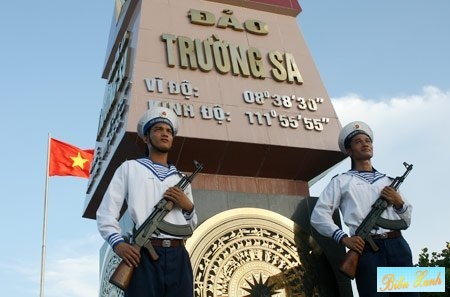
THE MARITIME ZONES OF VIET NAM
Article 8. Establishment of the baseline
The baseline used for measuring the breadth of Viet Nam's territorial sea is straight baselines publicised by the Government. The Government of Viet Nam shall determine and, upon approval by the National Assembly's Standing Committee, publicise the baselines in areas where baselines have not been established.
Article 9. Internal waters
The internal waters are the waters adjacent to the coast on the landward side of the baseline and constitute part of Viet Nam's territory.
Article 10. Legal status of the internal waters
The State of Viet Nam exercises full and absolute sovereignty over the internal waters as it does over the land territory.
Article 11. Territorial sea
The territorial sea of the Socialist Republic of Viet Nam is the water area extending 12 nautical miles from the baseline.
The outer limit of the territorial sea is Viet Nam's national maritime border.
Article 12. Legal status of the territorial sea
1. The State exercises full and absolute sovereignty over the territorial sea, the air space over, as well as the seabed and subsoil of the territorial sea in accordance with the 1982 United Nations Convention on the Law of the Sea.
2. Vessels of all states enjoy the right of innocent passage through Viet Nam's territorial sea. Foreign military vessels exercising the right of innocent passage through Viet Nam's territorial sea shall give prior notice to Vietnamese competent authorities.
3. Innocent passage of foreign vessels shall be conducted on the basis of respect for the peace, independence, sovereignty, legislation of Viet Nam and international treaties to which the Socialist Republic of Viet Nam is a party.
4. Foreign aircrafts are not permitted to enter the air space over the territorial sea of Viet Nam unless otherwise agreed upon by the Vietnamese Government or in accordance with international treaties to which the Socialist Republic of Viet Nam is a party.
5. The State has sovereignty over any type of archaeological and historical objects in Viet Nam's territorial sea.
Article 13. Contiguous zone
The contiguous zone is the sea area adjacent to and beyond the territorial sea, which is 12 nautical miles wide from the outer limit of the territorial sea.
Article 14. Legal status of the contiguous zone
1. The State exercises sovereign rights, jurisdiction and other rights stipulated in Article 16 of this Law over the contiguous zone.
2. The State exercises control within the contiguous zone to prevent and punish acts of infringement of legislation on customs, tariff, health or immigration committed in the territory or the territorial sea of Viet Nam.
Article 15. Exclusive economic zone
The exclusive economic zone is an area adjacent to and beyond the territorial sea of Viet Nam, which integrates with the territorial sea to form a maritime zone extending to 200 nautical miles from the baseline.
Article 16. The legal status of Exclusive economic zone
1. Within the exclusive economic zone, the State of Viet Nam exercises the following rights:
a) Sovereign rights for the purpose of exploring, exploiting, managing and conserving the natural resources of the waters superjacent to the seabed, of the seabed and its subsoil; as well as with regard to other activities for the economic exploitation and exploration of the zone.
b) Jurisdiction with regard to the establishment and use of artificial islands, installations and structures; as well as marine scientific research, protection and preservation of the marine environment.
c) Other rights and duties in accordance with international law.
2. The State of Viet Nam respects freedoms of navigation and overflight, the right to lay submarine cables and pipelines and lawful uses of the sea by other states in Viet Nam's exclusive economic zone in accordance with the provisions of this Law and international treaties to which the Socialist Republic of Viet Nam is a party, provided that those operations are not detrimental to the sovereign rights, jurisdiction and national maritime interest of Viet Nam. The laying of submarine cables and pipelines is subject to the consent in writing by Vietnamese competent authorities.
3. Foreign organizations and individuals are allowed to participate in exploring, using and exploiting natural resources, conducting scientific research, establishing installations and structures in the exclusive economic zone of Viet Nam on the basis of international treaties to which the Socialist Republic of Viet Nam is a party, contracts signed in accordance with the provisions of Vietnamese legislation or with the permission granted by the Vietnamese Government.
4. The rights related to the seabed and subsoil are exercised in accordance with Articles 17 and 18 of this Law.
Article 17. Continental shelf
The continental shelf of the Viet Nam is the seabed and subsoil of the submarine areas adjarcent and beyond the territorial sea of Viet Nam, throughout the natural prolongation of its land territory, islands and archipelagos of Viet Nam, to the outer edge of the continental margin.
Where the outer edge of the continent margin does not extend up to 200 nautical miles measured from the baseline, the continental shelf in that area extends to a distance of 200 nautical miles measured from the baseline.
Where the outer edge of the continent margin extends beyond 200 nautical miles measured from the baseline, the continental shelf in that area extends to a distance not exceeding 350 nautical miles measured from the baseline or not exceeding 100 nautical miles measured from the 2,500 metre isobath.
Article 18. Legal status of the continental shelf
1. The State of Viet Nam exercises sovereign rights over its continental shelf for the purpose of exploring and exploiting natural resources.
2. The sovereign rights stipulated in paragraph 1 of this Article are exclusive in the sense that no one may conduct activities of exploring the continental shelf or exploiting natural resources of the continental shelf of Viet Nam without the consent by the Vietnamese Government.
3. The State of Viet Nam has exclusive rights to exploit the subsoil, authorize and regulate drilling on the continental shelf for any purpose.
4. The State of Viet Nam respects the right to lay submarine cables and pipelines and other lawful uses of the sea by other states on the continental shelf of Viet Nam in accordance with the provisions of this Law and international treaties to which the Socialist Republic of Viet Nam is a party, provided that those operations are not detrimental to the sovereign rights, jurisdiction and national maritime interest of Viet Nam. The laying of submarine cables and pipelines are subjected to the consent in writing by Vietnamese competent authorities.
5. Foreign organizations and individuals are allowed to participate in exploring, using, exploiting natural resources, conducting scientific research, establishing installations and structures on the continental shelf of Viet Nam on the basis of international treaties to which the Socialist Republic of Viet Nam is a party, contracts signed in accordance with the provisions of Vietnamese legislation or with the permission granted by the Vietnamese Government.
Article 19. Islands and archipelagos
1. An island is a naturally formed area of land surrounded by water, which is above water at high tide.
An archipelago is a group of islands, including parts of the islands, interconnecting water and other natural features closely related.
2. Islands and archipelagos under the sovereignty of Viet Nam are integral parts of Viet Nam's territory.
Article 20. The internal waters, territorial sea, contiguous zone, exclusive economic zone and continental shelf of islands, archipelagos.
1. Islands which can sustain human habitation or economic life of their own have internal waters, territorial sea, contiguous zone, exclusive economic zone and continental shelf.
2. Rocks which can not sustain human habitation or economic life of their own have no exclusive economic zone or continental shelf.
3. The internal waters, territorial sea, contiguous zone, exclusive economic zone and continental shelf of islands are determined in accordance with Articles 9, 11, 13, 14, 15 and 17 of this Law and demonstrated by maritime charts and geographical coordinates publicised by the Vietnamese Government.
Article 21. Legal status of islands and archipelagos
1. The State of Viet Nam exercises sovereignty over the islands and archipelagos of Viet Nam.
2. The legal status of the internal waters, territorial sea, contiguous zone, exclusive economic zone and continental shelf of islands are as provided for in Articles 10, 12, 14, 16 and 18 of this Law.
CHAPTER III
OPERATIONS IN MARITIME ZONES OF VIET NAM
Article 22. General provisions
1. Organizations and individuals conducting operations in the maritime zones of Viet Nam must respect Viet Nam's sovereignty, territorial integrity, sovereign rights, jurisdiction and her national interests, observe Viet Nam's domestic laws and related provisions of international law.
2. The State of Viet Nam respects and protects the legitimate rights and interests of vessels, organizations, individuals conducting operations in the maritime zones of Viet Nam in conformity with Vietnamese laws and international treaties to which the Socialist Republic of Viet Nam is a party.
Article 23. Innocent passage in the territorial sea
1. Passage through the territorial sea means the navigation of foreign vessels through the territorial sea of Viet Nam for either of the following purposes:
a) Traversing the territorial sea without entering the internal waters of Viet Nam, or calling at a port facility, station or dock outside Viet Nam's internal waters;
b) Entry or exit from Viet Nam's internal waters or calling at or leave such facility, station or dock.
2. Passage through the territorial sea must be continuous and expeditious, except in cases of maritime accidents, force majeure accidents, distress or for the purpose of rescuing people, vessels or aircrafts in distress.
3. Innocent passage in the territorial sea must not be prejudicial to the peace, national defence and security of Viet Nam, maritime order and safety. The passage of a foreign vessel through the territorial sea of Viet Nam shall be considered prejudicial to the peace, national defence and security of Viet Nam, maritime order and safety if that vessel conducts any of the following acts:
a) Threat or use of force against the independence, sovereignty and territorial integrity of Viet Nam;
b) Threat or use of force against the independence, sovereignty and territorial integrity of other countries; any act in violation of the fundamental principles of international law as stipulated in the United Nations Charter;
c) Practice or exercise with any type of weapons and in any form;
d) Collection of information detrimental to the national defence and security of Viet Nam;
e) Propaganda aimed at undermining the national defence and security of Viet Nam;
f) Launching, landing or taking on board any aircraft;
g) Launching, landing or taking on board any military device;
h) Loading or unloading any commodity, currency or person contrary to Vietnamese laws and regulations on customs, tariff, health or immigration;
i) Intentionally causing serious marine environmental pollution;
j) Illegal fishing;
k) Illegal conduct of research, surveys, explorations;
l) Adversely affecting the operation of the information and communication system or other installations or structures of Viet Nam;
m) Any operation not directly related to the passage.

Article 24. Obligations while conducting innocent passage
1. Foreign organizations and individuals, while conducting innocent passage in Viet Nam's territorial sea, must observe Vietnamese laws and regulations on the followings:
a) Safety of navigation, regulation of maritime traffic, sea lanes and traffic separation;
b) Protection of installations and systems to ensure maritime traffic, other installations or structures;
c) Protection of cables, pipelines;
d) Conservation of marine living resources;
e) Fishing and aquaculture;
f) Preservation of marine environment, prevention, restriction and control of pollution thereof;
g) Maritime scientific research and hydrographical surveys;
h) Customs, tariff, health, immigration.
2. The captain of a foreign nuclear-powered vessel or a vessel transporting radioactive, noxious or dangerous substances must take the following obligations in passing through Viet Nam's territorial sea:
a) Carry sufficient technical documents related to the vessel and goods on board and documents of mandatory civil insurance;
b) Be ready to provide the competent authorities of Viet Nam with all technical documents related to the vessel as well as goods on board;
c) Fully implement the special precautionary measures established for such vessels by Vietnamese laws and the international treaties to which the Socialist Republic of Viet Nam is a party;
d) Observe the decisions made by the Vietnamese competent authorities on the application of the special precautionary measures, including ban of passage through Viet Nam's territorial sea or forcing to leave Viet Nam's territorial sea immediately in case there are clear signs or evidence of possibile leakages or environmental pollution.
Article 25. Sea lanes and traffic separation in the territorial sea for innocent passage.
1. The Government establishes and publicizes sea lanes and traffic separation in the territorial sea for innocent passage for the purpose of ensuring safety of navigation.
2. Foreign oil tankers, nuclear- powered vessels or vessels transporting radioactive, noxious or dangerous substances while conducting innocent passage in Viet Nam's territorial sea may be required to use the sea lanes specified for concrete cases.
Article 26. Temporary suspension or restriction of innocent passage in the territorial sea
1. For the sake of safeguarding the sovereignty, national defence, security and interests or securing safety of navigation, protecting marine resources and the marine ecology, combatting pollution, tackling maritime accidents or marine environmental disasters, preventing the spread of epidemics, the Government may temporarily suspend or restrict the exercise of innocent passage in specified areas in Viet Nam's territorial sea.
2. The temporary suspension or restriction of innocent passage in specified areas in Viet Nam's territorial sea in accordance with Paragraph 1 of this Article shall be made public domestically and internationally on the "Maritime Notice" in accordance with international maritime practice at least 15 days before the temporary suspension or restriction takes effect or immediately after the application of such measure in case of emergency.
Article 27. Foreign military vessels and government vessels coming to Viet Nam
1. Foreign military vessels and government vessels shall be allowed to enter the internal waters, anchor at a port facility, station or dock within the internal waters or at a port facility, station or dock outside the internal waters of Viet Nam only at the invitation of the Vietnamese Government or in accordance with the agreement between the competent authorities of Viet Nam and the flag States.
2. Foreign military vessels and government vessels, while being in the internal waters, ports, stations or docks within the internal waters or at the port facilities, stations or docks outside the internal waters of Viet Nam, shall observe the provisions of this Law and other related laws and regulations and ensure that their operations conform to the invitation of the Vietnamese Government or the agreement with the Vietnamese competent authorities.
Article 28. Responsibilities of foreign military vessels and government vessels in the maritime zones of Viet Nam
In case foreign military vessels violate Vietnamese laws while operating in the maritime zones of Viet Nam, the Vietnamese sea patrol and surveillance forces shall require them to put an immediate stop to the violation and, if such vessels are in Viet Nam's territorial sea, to leave the territorial sea immediately. Violating vessels must observe the requests and orders of the Vietnamese sea patrol and surveillance forces.
In case a foreign military vessel or a vessel of official service violates Vietnamese laws or related international law while operating in Viet Nam's maritime zones, the flag State shall be responsible for any damage caused by such vessel to Viet Nam.
Article 29. Operation of foreign submarines and other underwater vehicles in Viet Nam's internal waters and territorial sea
Within Viet Nam's internal waters and territorial sea, foreign submarines and other underwater vehicles must operate on the water surface and fly their national flags unless otherwise permitted by the Vietnamese Government or agreed upon between the Vietnamese Government and the Government of the flag States.
Article 30. Criminal jurisdiction over foreign vessels
1. Within the scope of their mandates and responsibilities, the Vietnamese sea patrol and surveillance forces shall have the right to take measures such as arrests of persons, conduct investigation of crimes taking place on board of foreign vessels during the passage in Viet Nam's territorial sea after leaving from the internal waters.
2. In regard to crimes taking place on board of foreign vessels during the passage in Viet Nam's territorial sea but not upon leaving from the internal waters, the Vietnamese sea patrol and surveillance forces shall have the right to arrest persons, conduct investigation in the following cases:
a) The consequence of the crimes affects Viet Nam;
b) The crimes committed are aimed at sabotaging peace in Viet Nam or law and order in Viet Nam's territorial sea;
c) The captain of the vessel, or a diplomatic or consular official of the flag State requests for assistance by the competent agencies of Viet Nam;
d) To prevent acts of trafficking in persons, illicit trafficking, stockpiling or transportation of narcotics.
3. The sea patrol and surveillance forces shall not take any measure on board of a foreign vessel navigating in Viet Nam's territorial sea for the purposes of arresting people or investigating crimes happening before the vessel enters Viet Nam's territorial sea if the vessel had departed from a foreign port and only passes through the territorial sea without going into the internal waters of Viet Nam, except for the case of preventing or limiting the pollution of marine environment or for exercising the national jurisdiction prescribed in sub-paragraph b, paragraph 1, Article 16 of this Law.
4. The application of criminal procedures must be in conformity with the provisions of Vietnamese laws and international treaties to which the Socialist Republic of Viet Nam is a party.
Article 31. Civil jurisdiction over foreign vessels.
1. Sea patrol and surveillance forces shall not force a foreign vessel passing through the territorial sea to stop or change course for the purpose of exercising the civil jurisdiction over an individual aboard the vessel.
2. Sea patrol and surveillance forces shall not arrest or apply civil measures to foreign vessels navigating in the maritime zones of Viet Nam outside the internal waters, except as required in compliance with the obligations or civil responsibilities borne by the vessel when passing by or in order to pass through the maritime zones of Viet Nam.
3. Sea patrol and surveillance forces may apply measures, including arrest, against a foreign vessel for the purpose of exercising civil jurisdiction if the vessel is anchored in the territorial sea or passing through the territorial sea upon leaving the internal waters of Viet Nam.
Article 32. Communication in ports, piers or docks of Viet Nam
Organizations, individuals and vessels while staying in ports, piers or docks within the internal waters or in port facilities, stations or docks of Viet Nam outside the internal waters shall communicate in accordance with the provisions of Vietnamese laws or relevant international law.
Article 33. Search and rescue
1. Individuals and vessels or flying vehicles, which are in distress or in danger at sea and in need of assistance, shall transmit SOS signals as prescribed and, as soon as the condition permits, inform the port authorities or the centre for coordination of maritime search and rescue or nearest local authorities of Viet Nam for necessary assistance and guidance
2. When noticing people or vessels in distress or in danger at sea or receiving SOS signals from people or vessels in distress at sea, all individuals and vessels must render all possible assistance to people or vessels in distress or in danger if the actual situation allows and without causing danger to their vessels or people on board and promptly inform individuals or organizations concerned.
3. The State guarantees necessary assistance in accordance with the provisions of Vietnamese laws and relevant international law and in the humanitarian spirit to the people and vessels in distress or in danger at sea so that they may have quick access to search, rescue and recovery.
4. In the Vietnamese internal waters, territorial sea, the State has the exclusive rights in carrying out search and rescue activities for the people and vessels in distress or in danger requiring help.
5. Competent authorities have the right to mobilize individuals and vessels operating in the maritime zones of Viet Nam to join in search and rescue if the actual conditions allow and without causing danger to those individuals and vessels.
The mobilization and requests laid down in this Article are only applied in emergency cases and only during the time necessary for the search and rescue work.
6. Maritime rescue is conducted on the basis of maritime rescue contract between the vessel owners or the captains of the vessel rendering the rescue and the vessel requiring rescue, in accordance with the provisions of Vietnamese law and relevant international law.
7. Foreign vessels entering the maritime zones of Viet Nam to conduct search and rescue or to address the consequences of natural disasters or crises at the request of the Vietnamese competent authorities shall abide by the provisions of the Vietnamese law and international treaties to which the Socialist Republic of Viet Nam is a party.
Article 34. Artificial islands, installations or structures at sea
1. Artificial islands, installations or structures at sea include:
a) Drilling platforms at sea and all supporting facilities ensuring the normal and continuous operations of the drilling platforms or specialized equipment for maritime exploration, exploitation and usage;
b) Maritime sign posts;
c) Other installations and structures installed and used at sea
2. The State has the jurisdiction over artificial islands, installations and structures in the exclusive economic zone and continental shelf of Viet Nam, including the jurisdiction prescribed in relevant laws on customs, tax, health, security and immigration.
3. Artificial islands, installations and structures at sea and supporting facilities have the safety zone of 500 metres from the furthest point of those artificial islands, installations and structures at sea, but do not have the territorial sea or other maritime zones of their own.
4. No artificial island, installation or structure shall be constructed and no safety zone shall be established around artificial islands, installations or structures in the locations where the existence of such artificial island, installation or structure and their safety zones may impede the use of the sea lanes recognized as essential to international maritime transport.
5. Upon expiration of usage, installations and structures at sea must be dissembled and removed from the maritime zones of Viet Nam, except otherwise permitted by the competent authorities. In case installations or structures and their parts have not been fully removed due to technical reasons or as permitted, information regarding their location, size, shape, depth must be made available and appropriate maritime signposts or other forms of signal must be installed.
6. Information related to the construction of artificial islands, installations and structures at sea and the establishment of safety zones around them, or the disassembling of all installations, structures and their parts must be made available to the Vietnamese competent agencies and duely announced domestically and internationally, at least 15 days prior to the date of construction, establishment or disassembling of such artificial islands, installations or structures.
Article 35. Preservation, protection of marine resources and environment
1. When operating in the maritime zones of Viet Nam, vessels, organizations and individuals must observe all provisions of Viet Nam laws and relevant international law relating to the preservation and protection of marine resources and environment.
2. When transporting, loading or unloading goods or materials that may cause damage to marine resources and human life, or may pollute the marine environment, vessels, organizations and individuals must use specialized facilities and measures as prescribed to prevent and minimize the possible damage to human beings, marine resources and environment.
3. Vessels, organizations and individuals must not discharge, sink or dump industrial waste, nuclear waste or other toxic waste in the maritime zones of Viet Nam.
4. Vessels, organizations or individuals causing harmful effects to the marine resources and environment in the Vietnames maritime zones, harbours or piers, in violation of the provisions of Vietnamese laws and relevant international law, shall be dealt with in accordance with the provisions of Vietnamese laws and the international treaties to which the Socialist Republic of Viet Nam is a party; those vessels, organizations or individuals shall be responsible for cleaning up and recovering the environment, compensate for the damage as prescribed by law.
5. Organizations or individuals operating in the maritime zones of Viet Nam are obliged to pay taxes, fees, charges and other contributions for the environmental protection in accordance with the provisions of Vietnamese laws and international treaties to which the Socialist Republic of Viet Nam is a party.
Article 36. Marine scientific research
1. Foreign vessels, organizations or individuals conducting scientific research in the maritime zones of Viet Nam must obtain license from competent State agency of Viet Nam, be monitored by Viet Nam, allow Vietnamese scientists to participate in the research and provide the Vietnamese side with research materials, original samples and related research results
2. When conducting scientific research in the maritime zones of Viet Nam, vessels, organizations or individuals must abide by the followings:
a) Research is conducted exclusively for peaceful purpose(s);
b) Research is conducted with appropriate methods and facilities under Vietnamese laws and relevant international law;
c) Not to impede other lawful activities at sea under Vietnamese laws and relevant international law.
d) The State of Viet Nam is entitled to participate in foreign scientific research activities conducted in the maritime zones of Viet Nam, to be provided with the research materials, original samples and to apply and use the results obtained from such scientific research or survey.
Article 37. Acts forbidden in the exclusive economic zone and continental shelf of Viet Nam
When exercising the freedoms of navigation and overflight in the exclusive economic zone and continental shelf of Viet Nam, organizations or individuals are not permitted to :
1. Conduct any act against the sovereignty, defence and security of Viet Nam;
2. Conduct illegal exploitation of living resources, including illegal fishing;
3. Carry out illegal exploitation of currents, wind energy and other non-living resources;
4. Illegally construct, install and use artificial facilities or structures;
5. Conduct unlawful drilling or digging;
6. Conduct unlawful marine scientific research;
7. Pollute the marine environment;
8. Conduct piracy or armed robbery;
9. Conduct other unlawful activities under Vietnamese laws and international law.
Article 38. Ban of illegal stockpiling, use or trafficking of weapons, explosives and toxic substances.
While operating in the maritime zones of Viet Nam, vessels, organizations, individuals are not allowed to stockpile, use, illicitly traffic in weapons or explosives, toxic substances or other means and equipment that may cause harm to the people, natural resources and maritime environment pollution.
Article 39. Ban of trafficking in persons, unlawful trafficking, transporting, or stockpiling of narcotics
1. While operating in the maritime zones of Viet Nam, vessels, organizations and individuals are not allowed to engage in traffic in person, or illicit transport, stockpile of or traffic in narcotics;
2. When there is ground that vessels, organizations or individuals are trafficking in person or illicitly transporting, stockpiling or trafficking in narcotics, the Vietnamese sea patrol and surveillance forces are entitled to conduct search, check, arrest, or to escort them to a port, station or dock in Viet Nam, or to escort or transfer them to a port, station or dock abroad in accordance with the provisions of Vietnamese laws or international treaties to which the Socialist Republic of Viet Nam is a party .
Article 40. Ban of illegal broadcasting
While operating in the maritime zones of Viet Nam, vessels, organizations and individuals are not allowed to conduct illegal broadcasting or propaganda prejudicial to the defence and security of Viet Nam.
Article 41. The right of hot pursuit
1. Sea patrol and surveillance forces are entitled to conduct hot pursuit of foreign vessels which violate the Vietnamese laws and regulations, if such vessels are in the internal waters, territorial sea and contiguous zone of Viet Nam.
The right of hot pursuit is conducted after the patrol and surveillance forces have transmitted signals requesting the violating vessel or suspected violating vessel to stop for inspection and such vessel does not cooperate. The hot pursuit may be continued outside the territorial sea or contiguous zone of Viet Nam if the pursuit has not been interrupted.
2. The right of hot pursuit is also applied to acts of violation of the sovereign rights or jurisdiction of Viet Nam and acts of violation within the safety zones of and on artificial islands, installations or structures in the exclusive economic zone and continental shelf of Viet Nam.
3. The hot pursuit of Vietnamese patrol and surveillance forces terminates when the chased vessel enters the territorial sea of another state.
CHAPTER IV
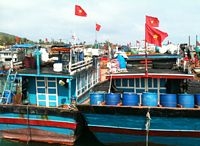
MARITIME ECONOMIC DEVELOPMENT
Article 42. Principles of maritime economic development
Maritime economy shall be developed in a sustainable and effective manner according to the following principles:
1. Serving national socio-economic development;
2. Staying attuned to the protection of state sovereignty, national defence, security,
and safety and order in the sea;
3. Meeting the need to manage marine natural resources and protect the marine
environment;
4. Promoting the socio-economic development of coastal localities and islands.
Article 43. Development of maritime economic industries
The State shall give priority to developing the following maritime economic industries:
1. Survey, exploration, exploitation, and processing of oil, gas, minerals and other maritime resources;
2. Maritime transportation, sea port, building and repair of ships, vessels, and maritime vehicles, and other maritime services;
3. Maritime tourism and island economy;
4. Exploitation, farming and processing of fishery products;
5. Research, development, application, and transfer of science and technology for resource exploitation and maritime economic development;
6. Building and development of maritime human resources.
Article 44. Planning for maritime economic development
1. The planning of maritime economic development shall be based on:
a) National strategy and master plan for socio-economic development; national strategy for environmental protection;
b) Guidelines for a sustainable development strategy and maritime strategy;
c) Geographic locations and features and natural characteristics or martime zones, coastal areas and islands;
d) Survey results on maritime resources and environment; reports on current use and estimates of demand for maritime resource exploitation and maritime environmental protection for the country, each region and each coastal province or centrally-directed city;
e) Estimated values of natural resources and vulnerability of the maritime environment;
f) Resources needed for implementing the planning.
2. Planning for maritime economic development shall include:
a) Analyzing and evaluating naturual and socio-economic conditions and current state of maritime resources exploitation and use;
b) Identifying directions, objectives and guidelines for reasonable use of resources and maritime environmental protection;
c) Dividing maritime zones for the purpose of socio-economic development, national defence, security; identifying areas under exploitation ban or conditional exploitation, areas under special protection for the purpose of national defence, security, environmental protection, and preservation of ecosystem, artificial islands, facilities, and projects at sea;
d) Identifying locations, areas and map of areas where the sea surface, the seabed and islands are being used and developed;
e) Identifying specifically vulnerable coastal areas, such as alluvial ground, eroding areas, protective forests, submerged land, coastal sand; identifying buffer zones and anticipating appropriate measures for management and protection;
f) Proposing solutions and roadmap for implementing plans.
3. The Government shall develop overall plans for developing maritime economic industries as stipulated in Article 43 of this Law and oversee the development of the national plan for sea exploitation to be submitted to the National Assembly for consideration and adoption.
Article 45. Building and development of maritime economy
1. The State shall develop investment policies in building and developing coastal economic zones and industrial clusters, developing the economy of island districts as planned to ensure effectiveness and sustainable development.
2. The assignment of certain sea areas to organizations and individuals for marine resources exploitation shall be carried out in accordance with the regulations of the Government.
Article 46. Incentives and investment preferentials for economic development of island and maritime economic activities
1. The State shall give priority to investment for infrastructure, networks of maritime logistics, and economic development in island districts and have preferential policies to improve the material and cultural life of island residents.
2. The State shall provide preferentials and incentives in terms of tax and credits and create favourable conditions for organizations and individuals to invest in exploiting the development potentials and advantages of the islands.
3. The States shall provide preferential and incentives in terms of tax and credits and create favourable conditions for organizations and individuals to develop fisheries and other economic activities in the sea and on islands; protect people's activities in the sea and on islands.
4. The Government shall stipulate in details regulations to fulfill this Article.
CHAPTER V
SEA PATROL AND SURVEILLANCE
Article 47. Sea patrol and surveillance forces
1. Sea patrol and surveillance forces shall include competent forces under the People's Army, the People's Police, and other specialized patrol and surveillance forces.
2. Militia and civil defence forces of coastal provinces and cities under central administration, guards of agencies and organizations located in coastal areas and other forces shall have the responsibility to participate in sea patrol and surveillance when requested by the competent agencies.
Article 48. Duties and scope of responsibility of sea patrol and surveillance.
The patrol and surveillance forces shall have the following duties:
a) Protect the sovereignty, sovereign rights, jurisdiction and national interest in the areas of Vietnamese sea and islands;
b) Ensure the observance of Vietnamese law and international treaties to which the Socialist Republic of Viet Nam is a party;
c) Protect state assets, marine natural resources and environment;
d) Protect, assist, search and rescue persons and vessels operating in the Vietnamese maritime zones and island areas;
e) Deal with unlawful acts in the maritime zones and island areas of Viet Nam in accordance with Vietnamese law.
2. Specific scope of responsibility of sea patrol and surveillance shall be stipulated in accordance with the provisions of the law.
3. The State shall ensure necessary conditions for sea patrol and surveillance forces to fulfill their assigned tasks.
Article 49. Flag, uniform and badge
When on duty, vessels of the sea patrol and surveillance forces shall be provided with sufficient Vietnamese national flags, number signs and pennants; sea patrol and surveillance personnel shall be provided with military uniforms, uniforms of the forces and other typical signs in accordance with the provisions of the law.
CHAPTER VI
HANDLING OF VIOLATIONS
Article 50. Escorting and location for settlement of violations
1. Pursuant to the provisions of the law, depending on the nature and degree of violation, the sea patrol and surveillance forces shall decide to address the violation on site or escort violating persons and vessels ashore or request competent agency of the flag state or the vessel's destination country to deal with the violation.
2. When escorting ashore for settlement, the violating persons and vessels shall be escorted to the nearest port, station or dock in the list of ports, stations or shelters announced by the competent agency of Viet Nam in accordance with the provisions of the law.
In case for the safety of life and property of persons on board, the patrol and surveillance forces may decide to escort the violating persons and vessels to the nearest port, station or dock of Viet Nam or other countries in accordance with the provisions of the law.
Article 51. Preventive measures
1. Persons with unlawful acts may be arrested, temporarily held in custody or temporarily detained; the vessels used for the unlawful acts can be temporarily held in custody for the purpose of preventing unlawful acts or to ensure the law enforcement.
2. Arrest, temporarily holdings in custody, or temporary detention of persons with unlawful acts and temporary holdings of vessels shall be made in accordance with the law.
Article 52. Notice to the Ministry of Foreign Affairs
When arresting, temporarily holding in custody, temporarily detaining persons with unlawful acts or temporarily holding in custody foreign vessels, the sea patrol and surveillance forces or competent state agencies shall have the responsibility to give notice to the Ministry of Foreign Affairs for coordination.
Article 53. Handling of violations
Agencies, organizations or individuals with unlawful acts, depending on the nature and levels, shall be dealt with by disciplining, administrative fines, being required to pay compensation in case of causing damage in accordance with the provisions of the law; the violating persons may be criminally prosecuted in accordance with the provisions of the law.
CHAPTER VII
IMPLEMENTATION PROVISIONS
Article 54. Entry into effect
This Law shall take effect on 1 January 2013
Article 55. Guidance of implementation
The Government shall stipulate in details and provide guidance for the implementation of the provisions that have been defined in this Law.
This Law was adopted by the 13th National Assembly of the Socialist Republic of Viet Nam at the 3rd Session on 21 June 2012.
Chairman of the National Assembly
(signed)
Nguyen Sinh Hung
Nguồn tin: Source: vietnamnews.vnanet.vn
Những tin mới hơn
- Food in Tet festival (06/02/2013)
- Hợp tác nghiên cứu biển với các nhà khoa học Pháp (15/07/2014)
- Peace in Hanoi, VIetNam (28/01/2013)
- Aplication of numerical model to study on maximum turbidity zones in Bach Dang estuary, Viet Nam (27/11/2012)
- The Hurt (26/11/2012)
- Richness and characteristic distribution of the branching coral genus (acropora) in spratly archipelago (Viet Nam) (27/11/2012)
- Nghiên cứu vi sinh vật biển cần nhà khoa học chuyên nghiệp (02/04/2014)
Những tin cũ hơn
- Youngest jump Gangnam style in Viet Nam (26/10/2012)
- International Cooperation with Germany at HaLong Bay (22/09/2012)
- International Cooperation with USA (21/09/2012)
- Mother is always in my memory ! (13/06/2012)
| Bizmac.com -thiết kế web 24/7 |
Tin mới
-
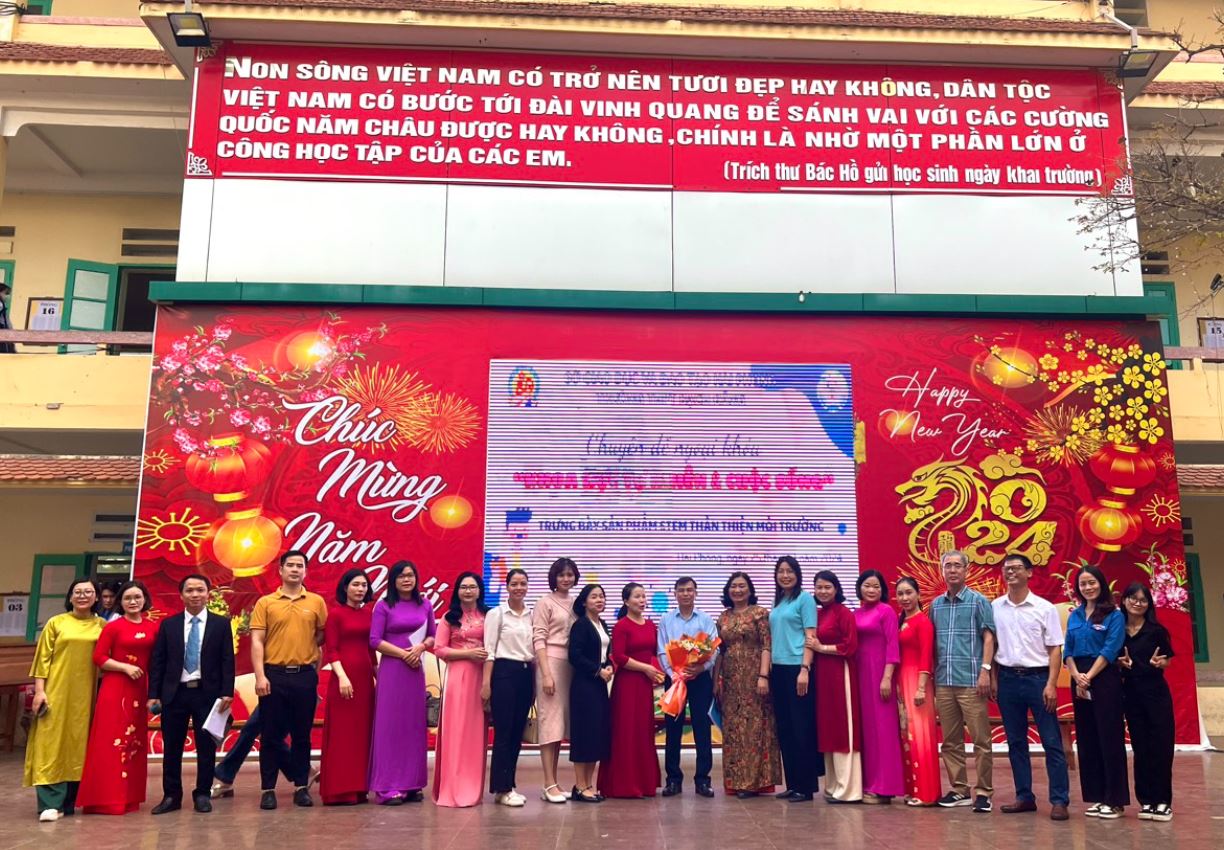 Tăng cường hoạt động giáo dục nâng cao ý thức bảo vệ môi trường cho mầm xanh tương lai
Tăng cường hoạt động giáo dục nâng cao ý thức bảo vệ môi trường cho mầm xanh tương lai
-
 Khó khăn trong xây dựng nông thôn mới tại các xã đảo: Cần có cơ chế hỗ trợ quá trình vận chuyển rác thải tái chế từ đảo vào đất liền
Khó khăn trong xây dựng nông thôn mới tại các xã đảo: Cần có cơ chế hỗ trợ quá trình vận chuyển rác thải tái chế từ đảo vào đất liền
-
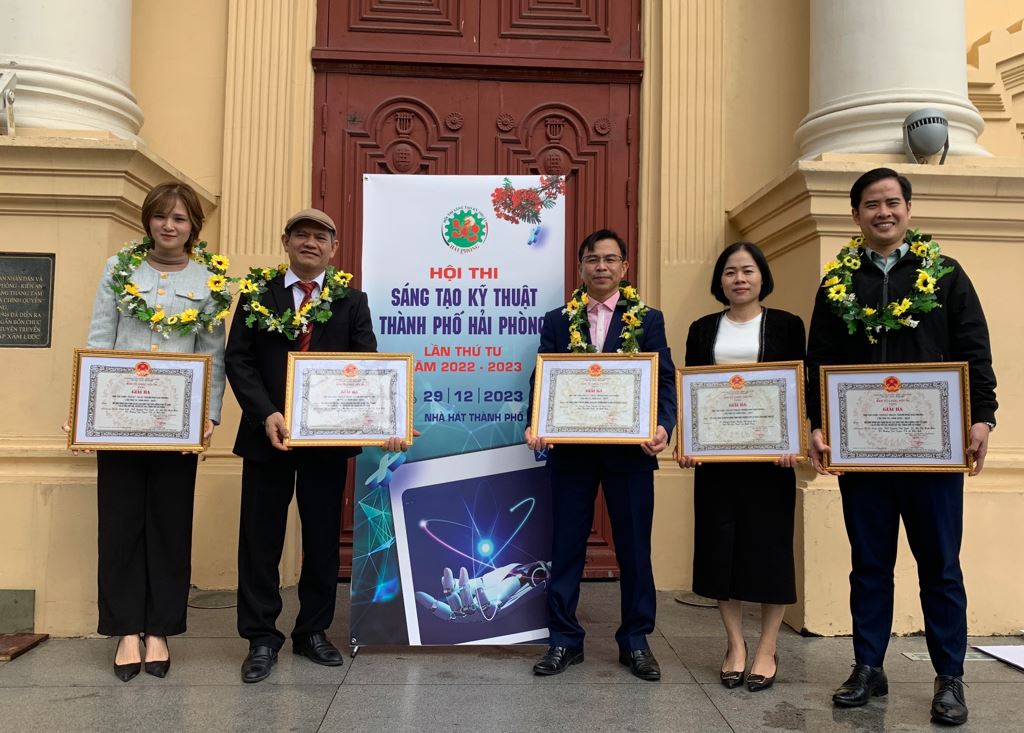 Mô hình kinh tế xanh cho xã đảo Việt Hải, hướng đi sáng tạo và bền vững
Mô hình kinh tế xanh cho xã đảo Việt Hải, hướng đi sáng tạo và bền vững
-
 TS. Lê Xuân Sinh vinh dự nhận Giải thưởng Môi trường Việt Nam năm 2021
TS. Lê Xuân Sinh vinh dự nhận Giải thưởng Môi trường Việt Nam năm 2021
-
 Năng lượng tái tạo là dòng máu xanh trong kinh tế bền vững
Năng lượng tái tạo là dòng máu xanh trong kinh tế bền vững
-
 Giảm thiểu rủi ro thiên tai bằng mô hình kinh tế xanh tại huyện đảo Bạch Long Vĩ
Giảm thiểu rủi ro thiên tai bằng mô hình kinh tế xanh tại huyện đảo Bạch Long Vĩ
-
 Tuyển tập các công trình công bố TS. Lê Xuân Sinh
Tuyển tập các công trình công bố TS. Lê Xuân Sinh
-
 Những điều chưa biết về cao tốc Bắc - Nam
Những điều chưa biết về cao tốc Bắc - Nam
-
 Cuộc sống là phải biết chia sẻ
Cuộc sống là phải biết chia sẻ
-
 Cuộc lột xác ngoạn mục của khu du lịch bãi biển Đồ Sơn
Cuộc lột xác ngoạn mục của khu du lịch bãi biển Đồ Sơn
-
 Hiện trạng chất lượng nước (Nước ngọt và nước biển) tại huyện đảo Bạch Long Vĩ, Thành phố Hải Phòng
Hiện trạng chất lượng nước (Nước ngọt và nước biển) tại huyện đảo Bạch Long Vĩ, Thành phố Hải Phòng
-
 Cuộc sống gia đình
Cuộc sống gia đình
-
 Các hộ gia đình cần biết về rác để tránh bị phạt
Các hộ gia đình cần biết về rác để tránh bị phạt
-
 Thăm quần đảo Trường Sa xa mà gần
Thăm quần đảo Trường Sa xa mà gần
-
 Thành quả của hoạt động bảo vệ môi trường của nhà khoa học biển
Thành quả của hoạt động bảo vệ môi trường của nhà khoa học biển
-
Tin tức
Toà án Quốc tế Hague phán quyết Đường Lưỡi Bò 9 Đoạn do Trung Quốc tuyên bố là “Vô Giá Trị” -
Dịch vụ biển
Tư vấn thử nghiệm và phân tích môi trường biển -
Dịch vụ biển
Thiết kế và xây lắp nhà cửa tốt nhất HP -
Ôtô
Nhiều bạn tự hỏi ký hiệu MT hay AT đối với ô tô là gì ? -
Qũy từ thiện
Quỹ từ thiện Bienxanh.net
- Loài người là sinh vật duy nhất sử dụng lửa và điện. Là động vật duy nhất xây nhà bằng gạch, xi măng...
- CHo mình xin thông tin về tour
- Hiền ơi, em lấy chồng chưa, đi du lịch với anh đến Việt Hải nhé.
- Lưu ý khi các bạn sử dụng Internet banking: Biển số xe phải đủ 29B-234.56 Tên khách hàng. Nhiều anh...
- Hay quá, đề nghj anh chị thông báo rộng rãi các chương trình sắp tới !
Gửi bài
Thăm dò ý kiến

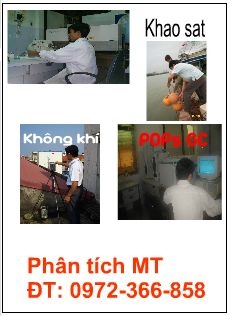
Thống kê
- Đang truy cập: 321
- Hôm nay: 29011
- Tháng hiện tại: 2454945
- Tổng lượt truy cập: 61137636


I suppport Viet Nam to protect the Paracel and Spratly archipelagos and other archipelagos.